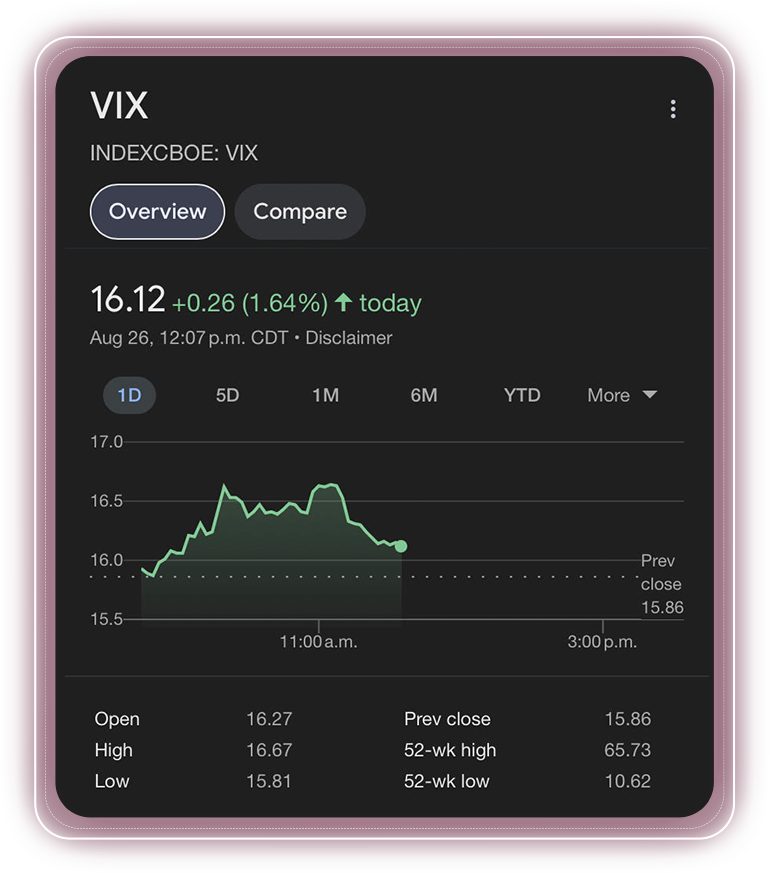Market Volatility

Market volatility refers to the degree of variation in the price of a financial asset or market index over a specific period of time. It is a statistical measure of the dispersion of returns, indicating how much the price of a security fluctuates in relation to its average price. Higher volatility means that the price of the asset can change dramatically over a short period, while lower volatility indicates more stable prices.
Key Points about Market Volatility
1. Measurement:
- Volatility is commonly measured using statistical metrics such as standard deviation and beta.
- The VIX (Volatility Index), often referred to as the "fear gauge," measures market expectations of near-term volatility based on options prices for the S&P 500 index.
2. Causes of Volatility:
- Economic Events: Earnings reports, economic data releases, or changes in monetary policy can lead to increased volatility.
- Geopolitical Events: Political instability, wars, and global crises (like pandemics) can also cause significant market fluctuations.
- Market Sentiment: Investor psychology and sentiment can greatly influence volatility. Fear or greed can lead to erratic buying or selling.
3. Types of Volatility:
- Historical Volatility: The actual past price fluctuations of an asset over a defined time frame.
- Implied Volatility: The market's forecast of potential price fluctuations in the future and is often derived from option pricing.
4. Implications for Traders and Investors:
- Risk Management: Understanding volatility helps investors manage risk by employing strategies such as stop-loss orders or diversifying their portfolios.
- Trading Strategies: Volatile markets can present trading opportunities for day traders and short-term investors, as rapid price movements can be capitalized on.
- Long-Term Investing: For long-term investors, high volatility may be less of a concern if they have a well-diversified portfolio, as they can weather short-term fluctuations.
5. Volatility and Returns:
- It's important to note that while higher volatility often indicates higher risk, it also presents the potential for greater returns if trades are timed correctly.
In summary, market volatility is a crucial concept that reflects the dynamic and sometimes unpredictable nature of financial markets, influencing trading strategies and investment decisions.

